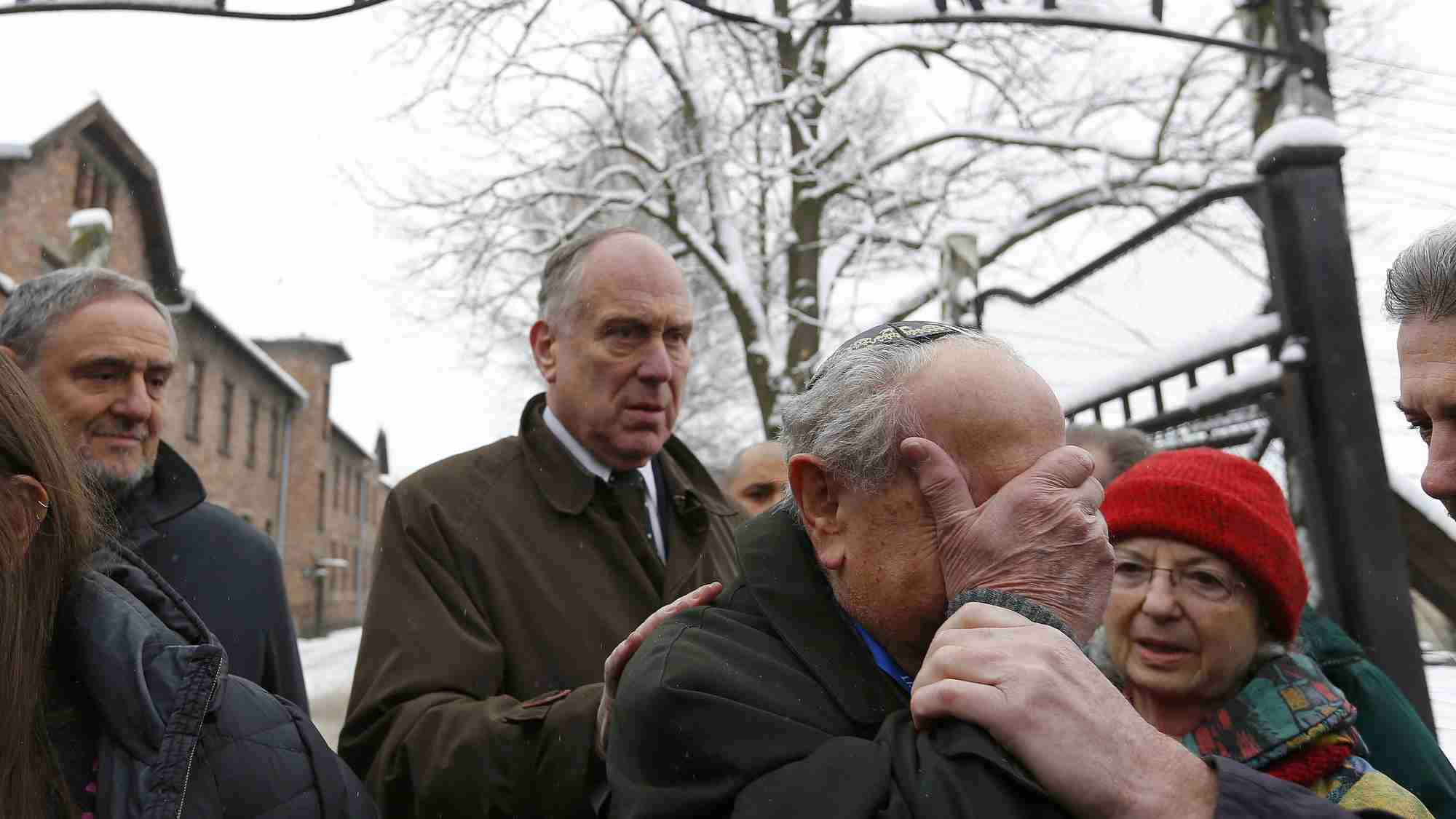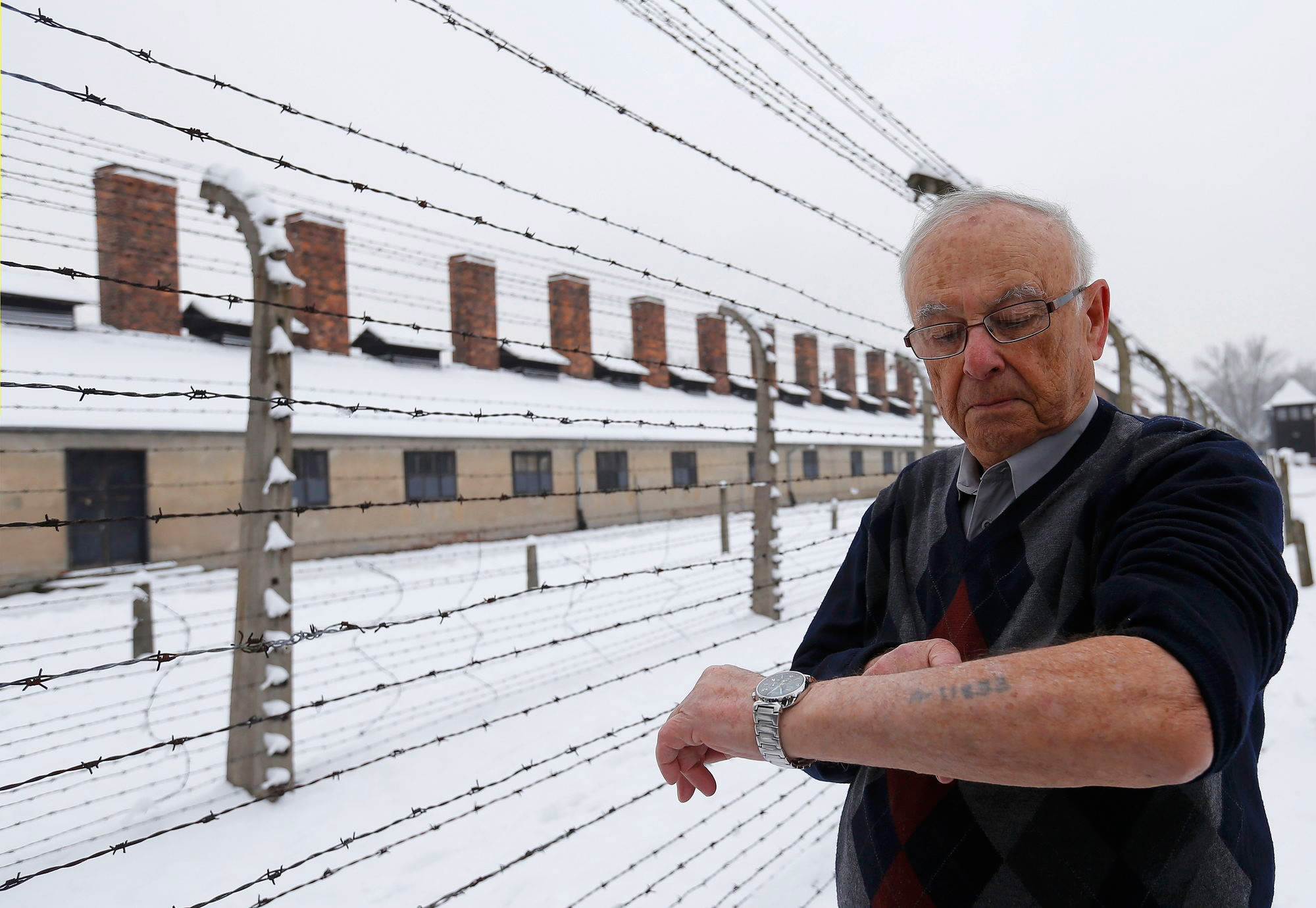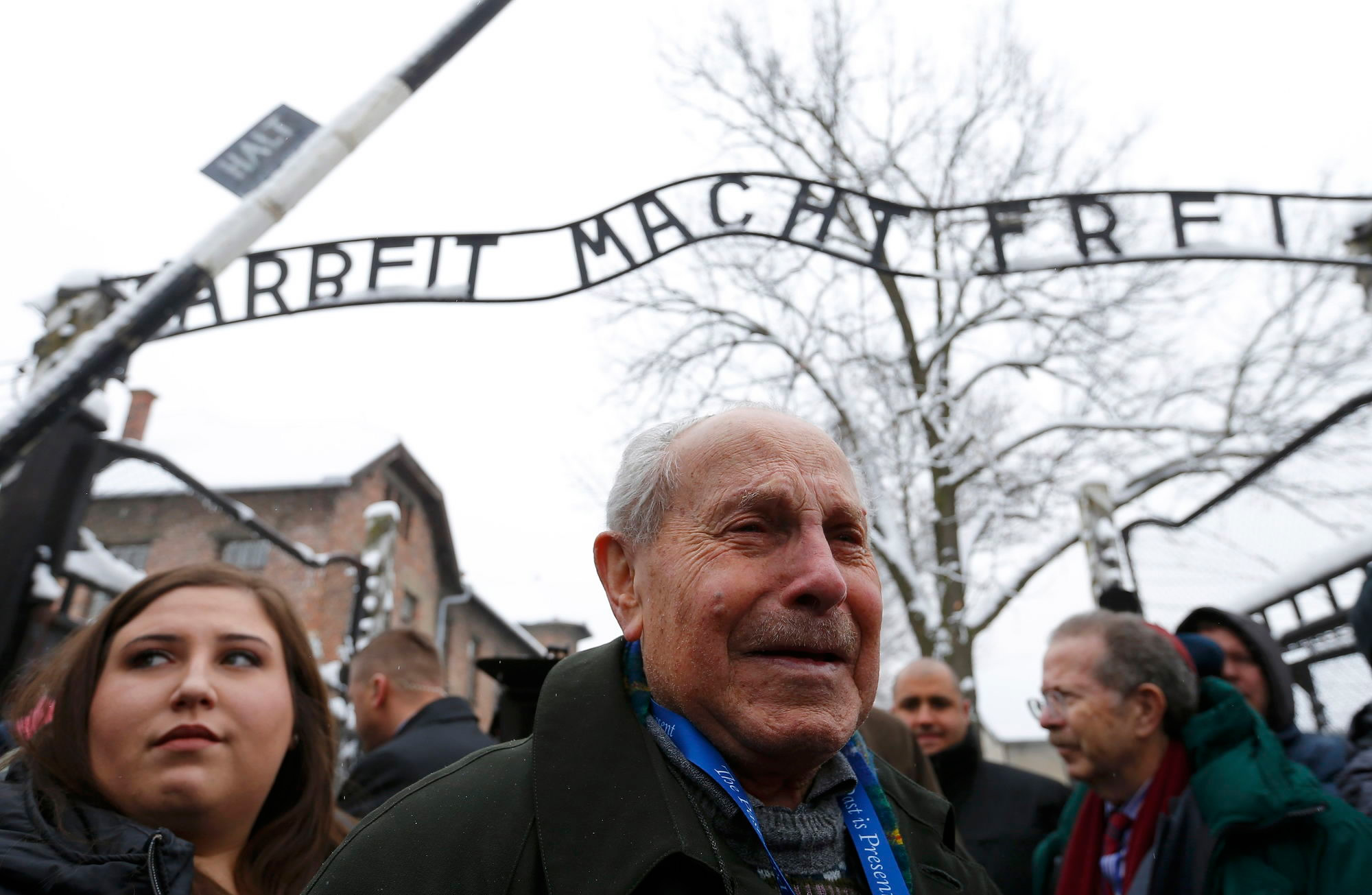
Politics
12:42, 28-Jan-2017
UN honors Holocaust victims, pledges to battle anti-Semitism, all forms of hatred
Updated
10:38, 28-Jun-2018

UN Secretary-General Antonio Guterres and other top UN officials on Friday said that the world has a duty to remember that the Holocaust was a systematic attempt to eliminate the Jewish people and so many others.
Marking the International Day of Commemoration in Memory of the Victims of the Holocaust, Guterres noted that building a future of dignity and equality for all will honor the victims of this "incomparable tragedy in human history...who we will never allow to be forgotten."

Jack Rosenthal of the US, a survivor of the former German Nazi concentration and extermination camp Auschwitz, shows his camp number tattooed on his arm as he visits the camp in Oswiecim on January 26, 2015. /CFP Photo
Jack Rosenthal of the US, a survivor of the former German Nazi concentration and extermination camp Auschwitz, shows his camp number tattooed on his arm as he visits the camp in Oswiecim on January 26, 2015. /CFP Photo
On January 27 each year, the United Nations remembers the Holocaust that affected many people of Jewish origin during World War II. It also commemorates the Soviet liberation of the Nazi concentration and death camp Auschwitz-Birkenau in Poland on January 27, 1945.
The secretary-general said in a video message that it would be a dangerous error to think of the Holocaust as simply the result of the insanity of a group of criminal Nazis.
"On the contrary, the Holocaust was the culmination of millennia of hatred, scapegoating and discrimination targeting the Jews, what we now call anti-Semitism," Guterres said, adding that tragically and contrary to the international community's resolve, anti-Semitism continues to thrive.
Moreover, the world is also witnessing a "deeply troubling" rise in extremism, xenophobia, racism and anti-Muslim hatred, he said. "Irrationality and intolerance are back."
Stressing that this is in complete contrast to the universal values enshrined in the UN Charter and Universal Declaration of Human Rights, he said: "We can never remain silent or indifferent when human beings are suffering."

Mordechai Ronen (C) of Canada, a survivor of the former German Nazi concentration and extermination camp Auschwitz, cries as he visits the camp in Oswiecim on January 26, 2015. /CFP Photo
Mordechai Ronen (C) of Canada, a survivor of the former German Nazi concentration and extermination camp Auschwitz, cries as he visits the camp in Oswiecim on January 26, 2015. /CFP Photo
"We must always defend the vulnerable and bring tormentors to justice. And as the theme of this year's observance highlights, a better future depends on education," he said.
"After the horrors of the 20th century, there should be no room for intolerance in the 21st," Guterres said. "I guarantee you that as Secretary-General of the United Nations, I will be in the frontline of the battle against anti-Semitism and all other forms of hatred."
Also on Friday, UN High Commissioner for Human Rights Zeid Ra'ad Al Hussein said the day of remembrance for the victims of the Nazi Holocaust forces the world to contemplate the horrors to which bigotry, racism and discrimination ultimately lead.
"The sadistic brutality of the atrocities inflicted by the Nazi regime on Jews, Roma, Slavs, persons with disabilities, political dissidents, homosexuals and others was nourished by layer upon layer of propaganda, falsifications and incitement to hatred," he said, adding that they were denigrated and smeared; one after another, their rights were refused, and finally, even their humanity was denied.
'It happened, therefore it can happen again,' wrote Primo Levi, who endured and survived the concentration camp at Auschwitz Birkenau. "As we honor the victims of the Holocaust, we must also acknowledge the need to prevent the recurrence of anti-Semitism and all forms of racial and religious hatred and discrimination today," he said.
Women from Canada and the UK place flowers at the 'Wall of Death' in the former Nazi German concentration and extermination camp Auschwitz in Oswiecim on January 26, 2015. /CFP Photo
"Above all, education must be at the core of all efforts to combat anti-Semitism, racism, and all forms of discrimination. Although an important part of that work must be centered on schools and other academic fora, education in this sense must extend far more broadly, so that we can undo the stereotypes which generate so much injustice and prejudice throughout society," Zeid said.
A Holocaust Memorial Ceremony was held on Friday at UN Headquarters in New York, hosted by UN Under-secretary-general for Communications and Public Information, Cristina Gallach.
Speakers included Peter Thomson, the president of the UN General Assembly, Danny Danon, the permanent representative of Israel to the UN, and Michele J. Sison, the US deputy permanent representative to the UN.
Noah Klieger, a 90-year-old Holocaust survivor, was keynote speaker.
The ceremony also featured music by guitarist Gary Lucas and vocalist Rachel Joselson, Doctor of Music Arts and Associate Professor at the University of Iowa.
Holocaust survivors and various leaders make their voices heard on the International Day of Commemoration in Memory of the Victims of the Holocaust. Many of them speak publicly about the Holocaust or their experiences around the event, its aftermath and why the world should never forget what happened in Europe in the 1930s and 1940s.
Many statements emphasize the need for future generations to learn about and remember the Holocaust and for everyone to work towards preventing genocide.
(Source: Xinhua)
10738km

SITEMAP
Copyright © 2018 CGTN. Beijing ICP prepared NO.16065310-3
Copyright © 2018 CGTN. Beijing ICP prepared NO.16065310-3